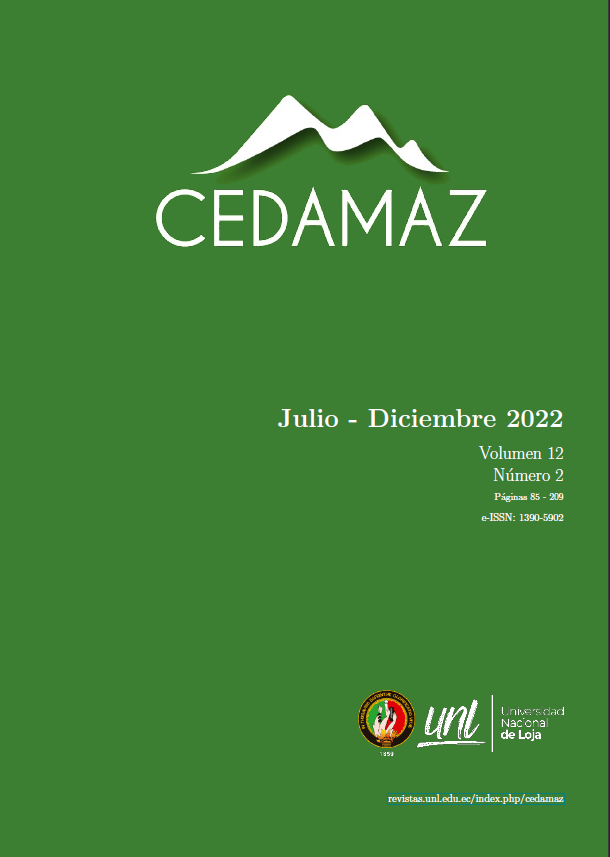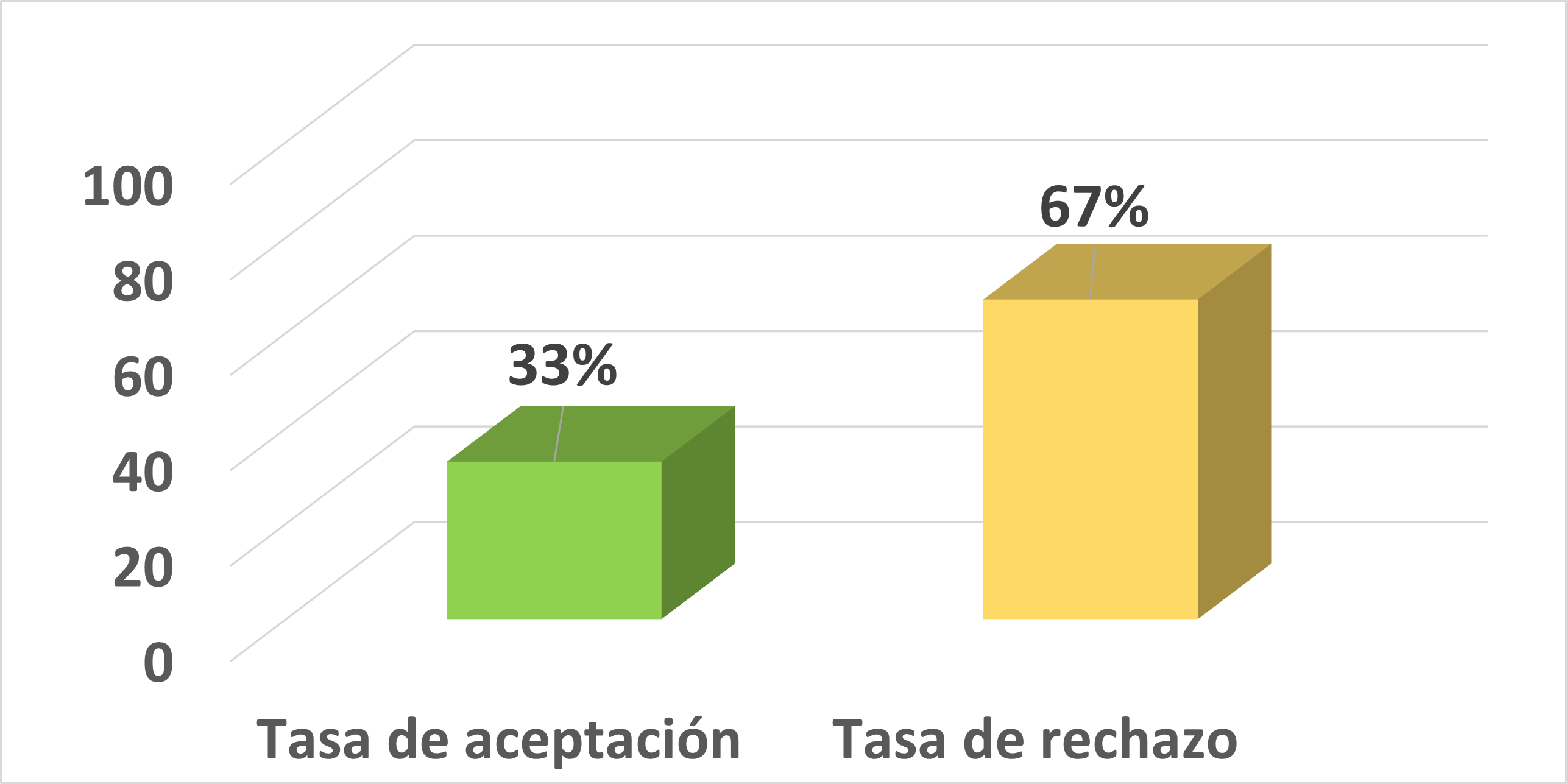Meta-análisis: Eficacia y seguridad de apixabán frente a warfarina en pacientes con fibrilación auricular para profilaxis de eventos cardiovasculares adversos
DOI:
https://doi.org/10.54753/cedamaz.v12i2.1266Palabras clave:
Apixabán, Warfarina, Fibrilación auricular, Profilaxis, Evento cardiovascularResumen
Los pacientes con fibrilación auricular (FA) requieren terapia anticoagulante para prevenir eventos cardiovasculares adversos. Un fármaco muy empleado es warfarina con beneficios variables e inconsistentes y mayor riesgo de hemorragia. Ante ello surgen nuevas alternativas terapéuticas que requieren ser evaluadas como apixabán, de ahí el propósito de realizar este meta-análisis. Se utilizaron las bases de datos de PubMed y Cochrane Library. El estudio incluyó 62.141 pacientes con FA de 6 ensayos clínicos aleatorios tipo ARISTOTLE. Se aplicó el test efectos fijos para los resultados agrupados y se probó la homogeneidad de los datos analizados. Se realizó el meta-análisis para evaluar las variables propuestas (eficacia y seguridad). La valoración de eficacia permitió establecer que apixabán al parecer es más eficaz que warfarina en la prevención de accidente cerebrovascular (OR = 0,81; LC 95% = 0,74-0,90; p-valor <0,05) y en la muerte por todas las causas (OR = 0,90; LC 95% = 0,84-0,95; p-valor <0,05). En la profilaxis de infarto del miocardio (OR = 0,91; LC 95% = 0,7-1; p-valor >0,05) se determinó que no hay diferencia significativa con el uso de los dos medicamentos. En la valoración de seguridad se determinó que el riesgo de sangrado mayor (OR = 0,7; LC 95% = 0,6-0,7; p-valor <0,05] es menor con apixabán en comparación con la warfarina. En conclusión, el uso de apixabán muestra mejores resultados que warfarina para prevenir eventos cardiovasculares adversos; sin embargo, se requiere de más estudios para verificar estos hallazgos. Palabras clave: Apixaban, warfarina, fibrilación auricular, profilaxis, evento cardiovascular.Citas
Almutairi, A. R., Zhou, L., Gellad, W. F., Lee, J. K., Slack, M. K., Martin, J. R. (2017). Effectiveness and Safety of Non – Vitamin K Antagonist Oral Anticoagulants for Atrial Fibrillation and Venous Thromboembolism: A Systematic Review and Meta-Analyses. Clinical Therapeutics, 1–59. https://doi.org/10.1016/j.clinthera.2017.05.358 DOI: https://doi.org/10.1016/j.clinthera.2017.05.358
Andrade, J., Khairy, P., Dobrev, D., Nattel, S. (2014). The clinical profile and pathophysiology of atrial fibrillation: relationships among clinical features, epidemiology, and mechanisms. Circulation Research, 114(9), 1453–1468. https://doi.org/10.1161/CIRCRESAHA.114.303211 DOI: https://doi.org/10.1161/CIRCRESAHA.114.303211
Assiri, A., Al-majzoub, O., Abir, O., Donovan, J. L., Silva, M. (2013). Mixed Treatment Comparison MetaAnalysis of Aspirin , Warfarin , and New Anticoagulants for Stroke Prevention in Patients With Nonvalvular´Atrial Fibrillation. Clinical Therapeutics, 35(7), 967-984.e2. https://doi.org/10.1016/j.clinthera.2013.05.011 DOI: https://doi.org/10.1016/j.clinthera.2013.05.011
Bahit, M. C., Lopes, R. D., Wojdyla, D. M., Hohnloser, S. H., Alexander, J. H., Lewis, B. S., Aylward, P. E., Verheugt, F. W. A., Keltai, M., Diaz, R., Hanna, M., Granger, C. B., Wallentin, L. (2013). Apixaban in patients with atrial fibrillation and prior coronary artery disease: Insights from the ARISTOTLE trial. International Journal of Cardiology, 170(2), 215–220. https://doi.org/10.1016/j.ijcard.2013.10.062 DOI: https://doi.org/10.1016/j.ijcard.2013.10.062
Bassand, J.-P. (2012). Revisión de los ensayos clínicos deanticoagulantes orales y antiagregantes en fibrilación auricular. Revista Uruguaya de Cardiología, 27(2), 175–190.
Galván Espinoza, L., Fernández Fresnedo, G. (2017). New oral anticoagulants in patients with chronic kidney disease. Nuevos anticoagulantes orales en pacientes con enfermedad renal crónica. Nefrologia : publicacion oficial de la Sociedad Espanola Nefrologia, 37(3), 244–252. https://doi.org/10.1016/j.nefro.2016.08.006. DOI: https://doi.org/10.1016/j.nefro.2016.08.006
Bruins Slot, K. M., Berge, E. (2018). Factor Xa inhibitors versus vitamin K antagonists for preventing cerebral or systemic embolism in patients with atrial fibrillation (Review). The Cochrane Database of Systematic Reviews, 3(3 CD008980). DOI: https://doi.org/10.1002/14651858.CD008980.pub3
Christersson, C., Wallentin, L., Andersson, U., Alexander, J. H., Alings, M., De Caterina, R., Gersh, B. J., Granger, C. B., Halvorsen, S., Hanna, M., Huber, K., Hylek, E. M., Lopes, R. D.,
Oh, B. H., Siegbahn, A. (2019). Effect of apixaban compared with warfarin on coagula-
tion markers in atrial fibrillation. Heart, 105(3), 235–242. https://doi.org/10.1136/heartjnl-2018-313351 DOI: https://doi.org/10.1136/heartjnl-2018-313351
Da Silva, F. C., Arancibia, B. A. V., da Rosa Iop, R., Gutierres Filho, P. J. B., da Silva, R. (2013). Escalas y listas de evaluación de la calidad de estudios científicos. RevistaCubana de Información en Ciencias de la Salud (ACIMED), 24(3), 295-312.
Escobar, C., Martí-Almor, J., Pérez Cabeza, A., Martínez-Zapata, M. J. (2019). Direct Oral Anticoagulants Versus Vitamin K Antagonists in Real-life Patients With Atrial Fibrillation. A Systematic Review and Meta-analysis. Revista espanola de cardiologia (English ed.), 72(4), 305–316. https://doi.org/10.1016/j.rec.2018.03.009 DOI: https://doi.org/10.1016/j.rec.2018.03.009
Flaker, G., Lopes, R. D., Al-Khatib, S. M., Hermosillo, A. G., Hohnloser, S. H., Tinga, B., Zhu, J., Mohan, P., Garcia, D., Bartunek, J., Vinereanu, D., Husted, S., Harjola, V. P., Rosenqvist, M., Alexander, J. H., Granger, C. B. (2014). Efficacy and safety of apixaban in patients after cardioversion for atrial fibrillation: Insights from the Aristotle trial (Apixaban for Reduction in Stroke and Other Thromboembolic Events in Atrial Fibrillation). Journal of the American College of Cardiology, 63(11), 1082–1087. https://doi.org/10.1016/j.jacc.2013.09.062 DOI: https://doi.org/10.1016/j.jacc.2013.09.062
Goto, S., Zhu, J., Liu, L., Oh, B. H., Wojdyla, D. M., Aylward, P., Bahit, M. C., Gersh, B. J., Hanna, M., Horowitz, J., Lopes, R. D., Wallentin, L., Xavier, D., Alexander, J. H. (2014). Efficacy and safety of apixaban compared with warfarin for stroke prevention in patients with atrial fibrillation from East Asia: A subanalysis of the apixaban for reduction in stroke and other thromboembolic events in atrial fibrillation (ARISTOTLE) tria. American Heart Journal, 168(3), 303–309. https://doi.org/10.1016/j.ahj.2014.06.005 DOI: https://doi.org/10.1016/j.ahj.2014.06.005
Guimarães, P. O., Pokorney, S. D., Lopes, R. D., Wojdyla, D. M., Gersh, B. J., Giczewska, A., Carnicelli, A., Lewis, B. S., Hanna, M., Wallentin, L., Vinereanu, D., Alexander, J. H., Granger, C. B. (2019). Efficacy and safety of apixaban vs warfarin in patients with atrial fibrillation and prior bioprosthetic valve replacement or valve repair: Insights from the ARISTOTLE trial. Clinical Cardiology, 42(5), 568–571. https://doi.org/10.1002/clc.23178 DOI: https://doi.org/10.1002/clc.23178
Jaspers Focks, J., Brouwer, M. A., Wojdyla, D. M., Thomas, L., Lopes, R. D., Washam, J. B., Lanas, F., Xavier, D., Husted, S., Wallentin, L., Alexander, J. H., Granger, C. B.,Verheugt, F. W. A. (2016). Polypharmacy and effects of apixaban versus warfarin in patients with atrial fibrillation: post hoc analysis of the ARISTOTLE trial. BMJ (Clinical Research Ed.), 353, i2868. https://doi.org/10.1136/bmj.i2868 DOI: https://doi.org/10.1136/bmj.i2868
Lau, D. H., Nattel, S., Kalman, J. M., Sanders, P. (2017). Modifiable Risk Factors and Atrial Fibrillation. Circulation, 136(6), 583–596. https://doi.org/10.1161/CIRCULATIONAHA.116.023163 DOI: https://doi.org/10.1161/CIRCULATIONAHA.116.023163
Liu, X., Huang, M., Ye, C., Zeng, J., Zeng, C., Ma, J. (2020). The role of non-vitamin K antagonist oral anticoagulants in Asian patients with atrial fibrillation: A PRISMA-compliant article. Medicine, 99(27), e21025. https://doi.org/10.1097/MD.0000000000021025 . Lobraico-Fernandez, J., Baksh, S., Nemec, E. (2019). DOI: https://doi.org/10.1097/MD.0000000000021025
Elderly Bleeding Risk of Direct Oral Anticoagulants in Nonvalvular Atrial Fibrillation: A Systematic Review and Meta-Analysis of Cohort Studies. Drugs in R and D, 19(3), 235–245. https://doi.org/10.1007/s40268-019-0275-y DOI: https://doi.org/10.1007/s40268-019-0275-y
López-López, J. A., Sterne, J. A. C., Thom, H. H. Z., Higgins, J. P. T., Hingorani, A. D., Okoli, G. N., Davies, P. A., Bodalia, P. N., Bryden, P. A., Welton, N. J., Hollingworth, W., Caldwell, D. M., Savovic, J., Dias, S., Salisbury, C., Eaton, D., Stephens-boal, A., Sofat, R. (2017). Oral anticoagulants for prevention of stroke in atrial fibrillation: systematic review , network meta-analysis , and cost effectiveness analysis. BMJ (Clinical Research Ed.), 359(j5058).
https://doi.org/10.1136/bmj.j5058 DOI: https://doi.org/10.1136/bmj.j5058
Margulescu, A. D., Mont, L. (2017). Persistent atrial fibrillation vs paroxysmal atrial fibrillation: differences in management. Expert Review of Cardiovascular Therapy, 15(8),
–618. https://doi.org/10.1080/14779072.2017.1355237 DOI: https://doi.org/10.1080/14779072.2017.1355237
Page, M. J., McKenzie, J. E., Bossuyt, P. M., Boutron, I., Hoffmann, T. C., Mulrow, C. D., Shamseer, L., Tetzlaff, J. M., Akl, E. A., Brennan, S. E., Chou, R., Glanville, J., Grimshaw, J. M., Hróbjartsson, A., Lalu, M. M., Li, T., Loder, E. W., Mayo-Wilson, E., McDonald, S., Mc-
Guinness, L. A., Moher, D. (2021). The PRISMA 2020 statement: an updated guideline for reporting systematic reviews. Declaración PRISMA 2020: una guía actualizada para la publicación de revisiones sistemáticas. Revista espanola de cardiologia (English ed.), 74(9), 790–799. https://doi.org/10.1016/j.rec.2021.07.010 DOI: https://doi.org/10.1016/j.rec.2021.07.010
Ramírez-Barrera, J. D., Agudelo-Uribe, J. F., Correa-Velásquez, R., González-Rivera, E. (2016). Fisiopatología de la fibrilación auricular. Revista Colombiana de Cardiología, 23(S5), 9–14. https://doi.org/10.1016/j.rccar.2016.10.004 DOI: https://doi.org/10.1016/j.rccar.2016.10.004
Shen, N.-N., Wu, Y., Wang, N., Kong, L.-C., Zhang, C., Wang, J.-L., Gu, Z.-C., Chen, J. (2020). Direct Oral Anticoagulants vs. Vitamin-K Antagonists in the Elderly With Atrial Fibrillation: A Systematic Review Comparing Benefits and Harms Between Observational Studies and Randomized Controlled Trials. Frontiers in Cardiovascular Medicine, 7(September), 1–9. https://doi.org/10.3389/fcvm.2020.00132 DOI: https://doi.org/10.3389/fcvm.2020.00132
Vinereanu, D., Stevens, S. R., Alexander, J. H., Al Khatib, S. M., Avezum, A., Bahit, M. C., Granger, C. B., Lopes, R. D., Halvorsen, S., Hanna, M., Husted, S., Hylek, E. M., Mrgulescu,
A. D., Wallentin, L., Atar, D. (2015). Clinical outcomes in patients with atrial fibrillation according to sex during anticoagulation with apixaban or warfarin: A secondary analysis of a randomized con trolled trial. European Heart Journal, 36(46), 3268–3275. https://doi.org/10.1093/eurheartj/ehv447 DOI: https://doi.org/10.1093/eurheartj/ehv447
Vizzardi, E., Curnis, A., Latini, M. G., Salghetti, F., Rocco, E., Lupi, L., Rovetta, R., Quinzani, F., Bonadei, I., Bontempi, L., D’Aloia, A., Dei Cas, L. (2014). Risk factors for atrial fibrillation recurrence: A literature review. Journal of Cardiovascular Medicine, 15(3), 235–253. https://doi.org/10.2459/JCM.0b013e328358554b DOI: https://doi.org/10.2459/JCM.0b013e328358554b
Wijesuren- dra, R. S., Casadei, B. (2019). Mechanisms of atrial fibrillation. Heart, 1–8. https://doi.org/10.1136/heartjnl-2018 314267
Zhang, J., Tang, J., Cui, X., Wang, B., Bu, M., Bai, Y., Wang, K., Guo, J., Shen, D., Zhang, J. (2019). Indirect comparison of novel Oral anticoagulants among Asians with non Valvular atrial fibrillation in the real world setting: A network meta-analysis. BMC Cardiovascular Disorders, 19(1), 1–12. https://doi.org/10.1186/s12872-019-1165-5 DOI: https://doi.org/10.1186/s12872-019-1165-5
Publicado
Cómo citar
Número
Sección
Licencia
Derechos de autor 2022 CEDAMAZ

Esta obra está bajo una licencia internacional Creative Commons Atribución-NoComercial-SinDerivadas 4.0.
Aquellos autores/as que tengan publicaciones con esta revista, aceptan los términos siguientes:
-
Luego que el artículo científico es aceptado, para su publicación el o la autora aceptan ceder los derechos de la primera publicación a la Revista CEDAMAZ, conservando sus derechos de autor. Se permite la reproducción total o parcial de los textos que se publican siempre y cuando sea sin fines de lucro. Cuando se ejecute la reproducción total o parcial de los artículos científicos aceptados y publicados en la revista CEDAMAZ, se debe citar la fuente completa y la dirección electrónica de la publicación.
-
Los artículos científicos aceptados y publicados en la revista CEDAMAZ pueden ser depositados por los autores de manera integra en cualquier repositorio sin fines comerciales.
-
Los autores no deben distribuir los artículos científicos aceptados, pero que todavía no han sido publicados oficialmente por la revista CEDAMAZ. En el caso de incumplir esta norma implica el rechazo del articulo científico.
- La publicación de su obra, el cuál estará simultáneamente sujeto a la Licencia de reconocimiento de Creative Commons









